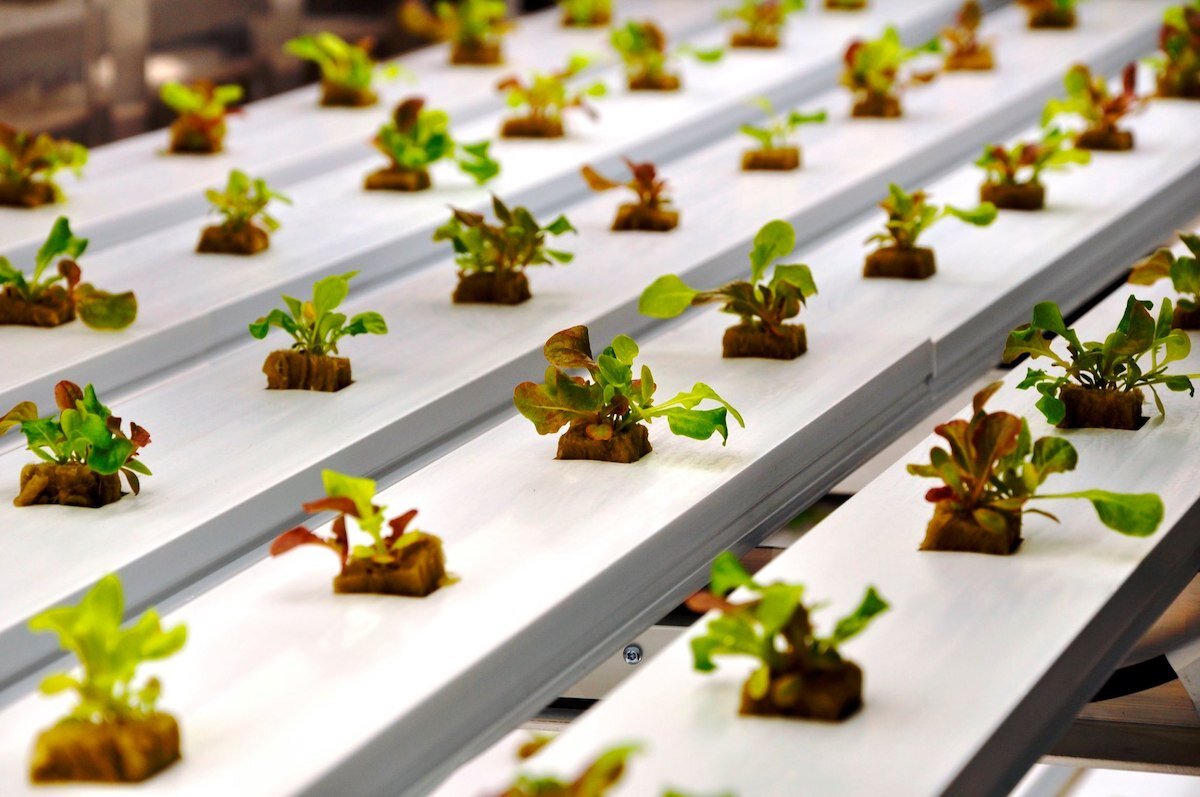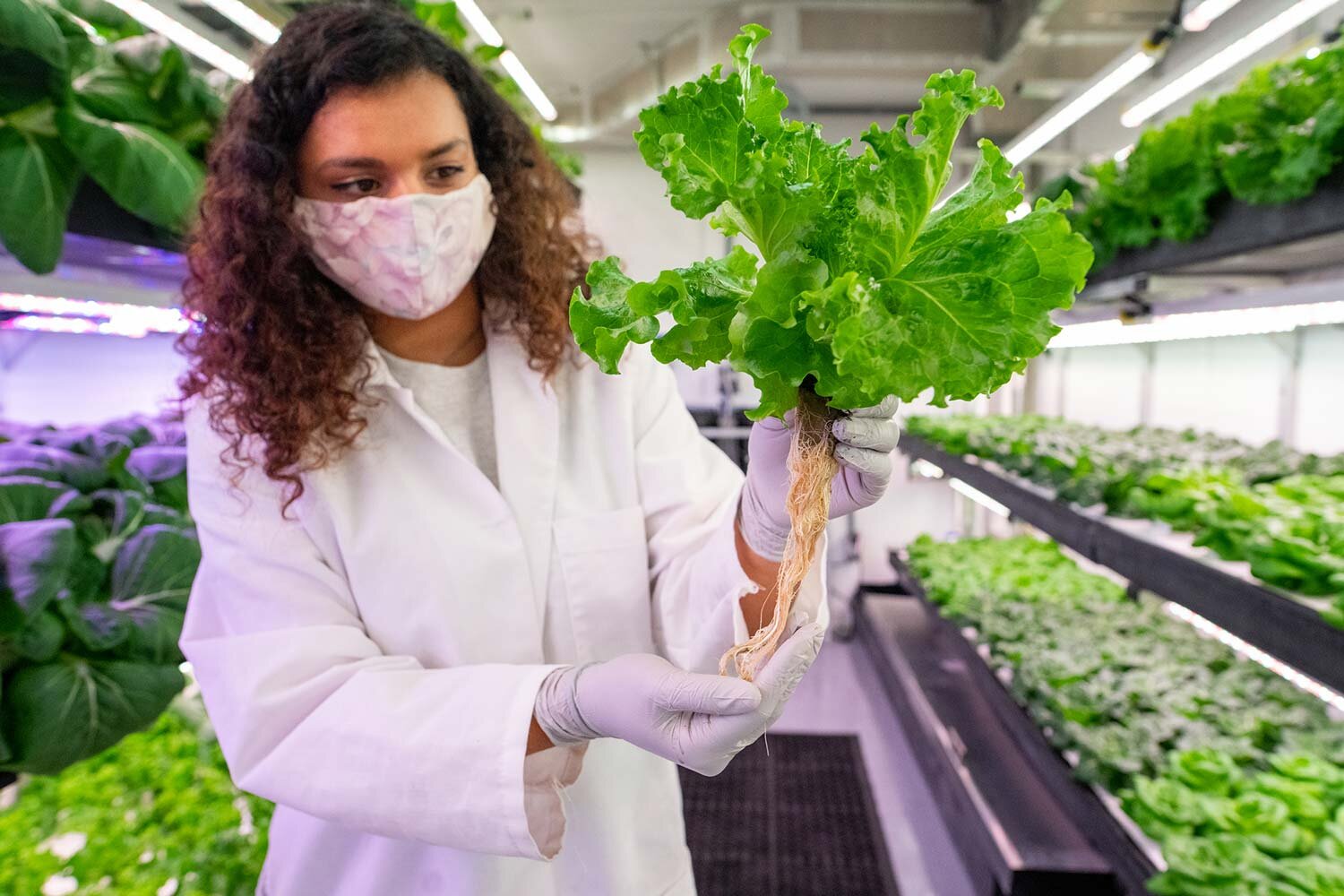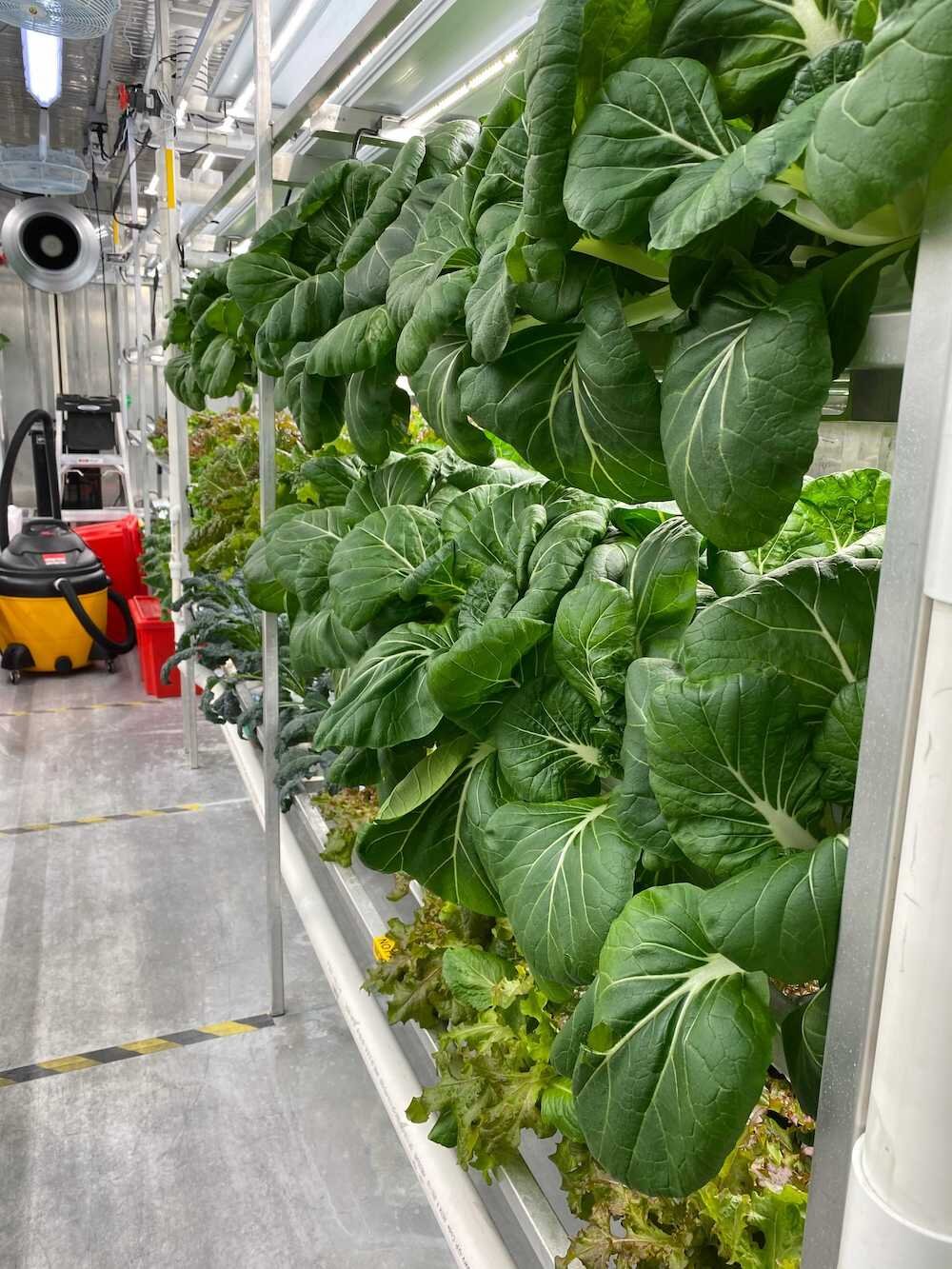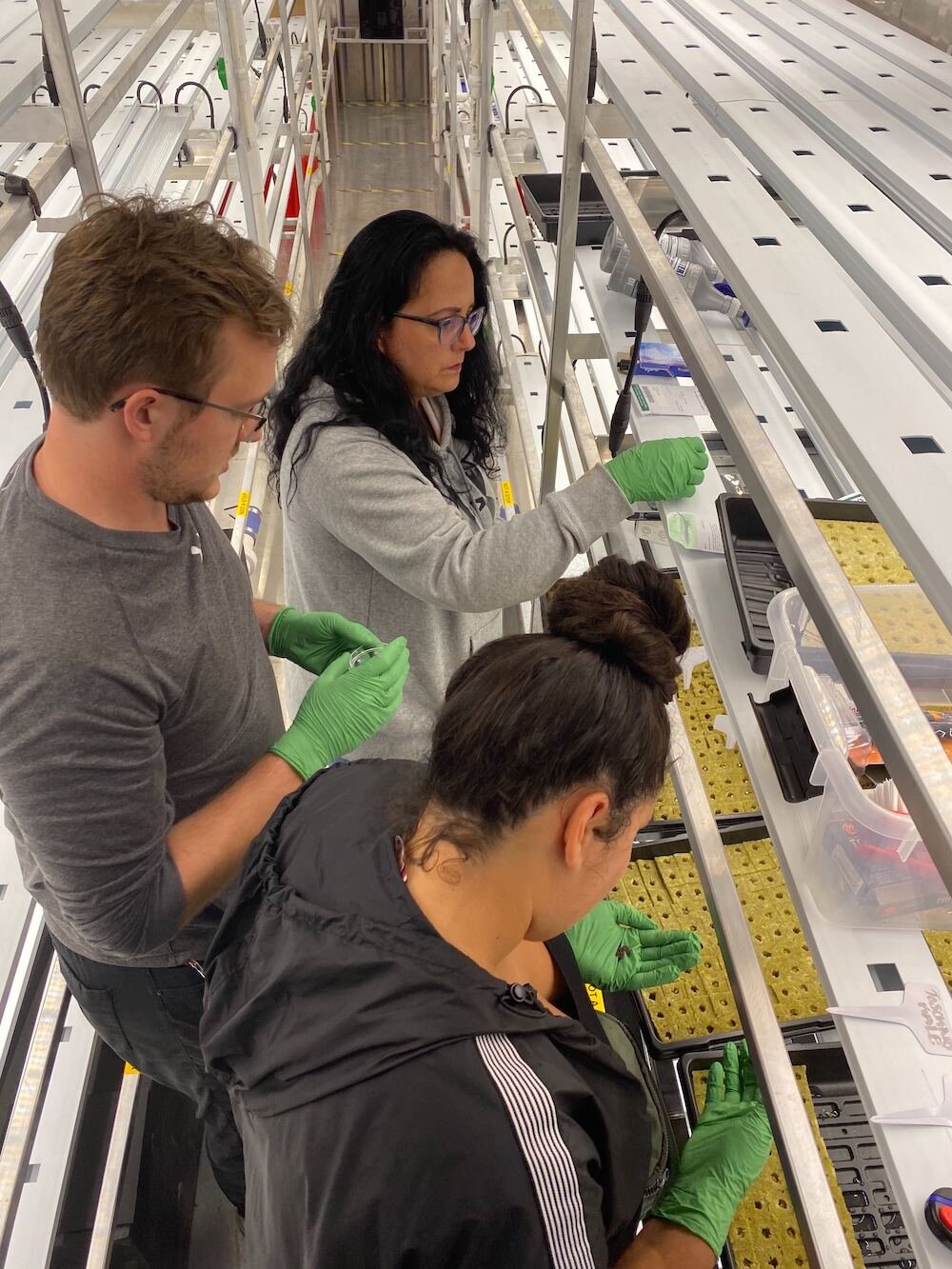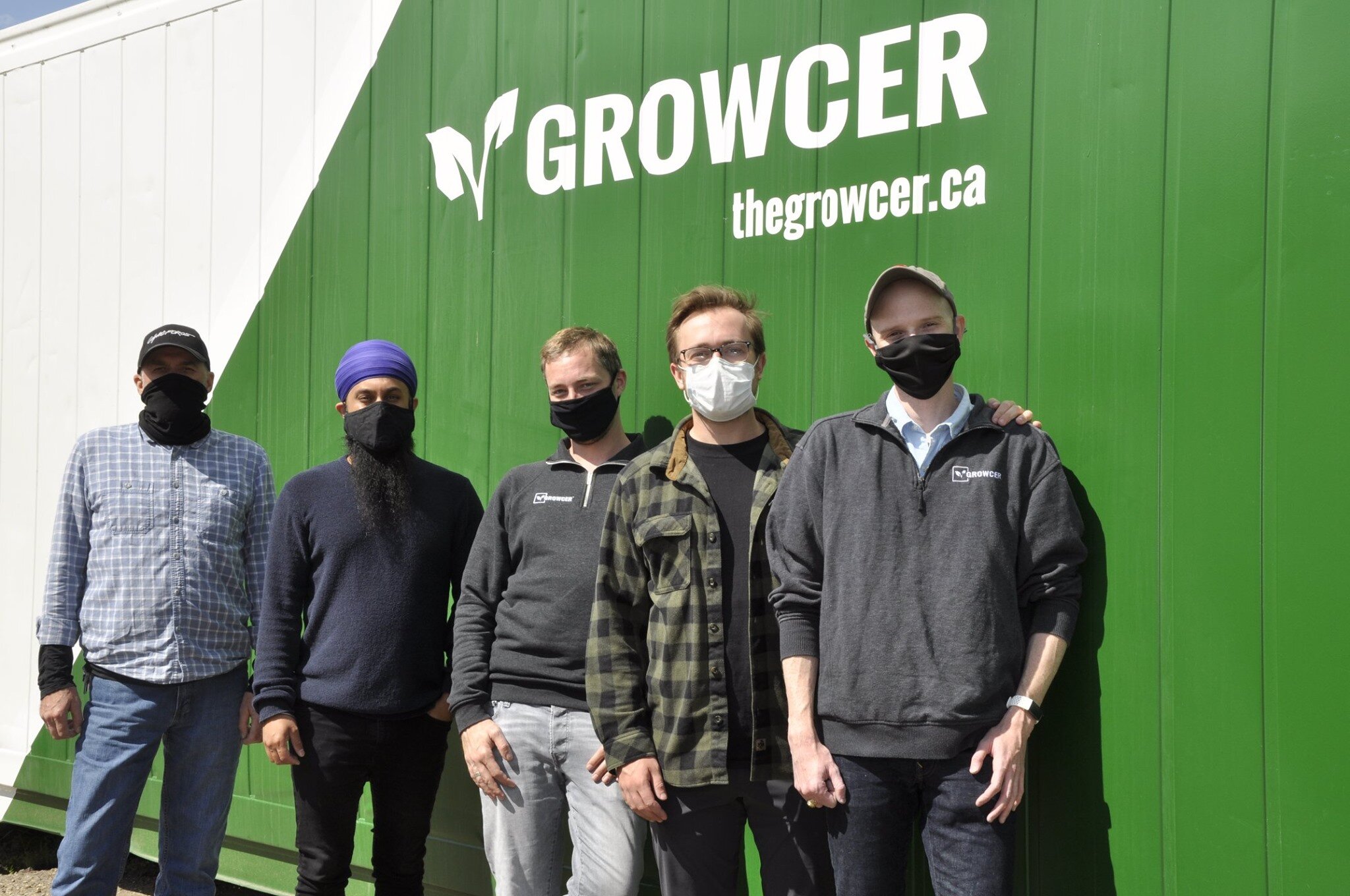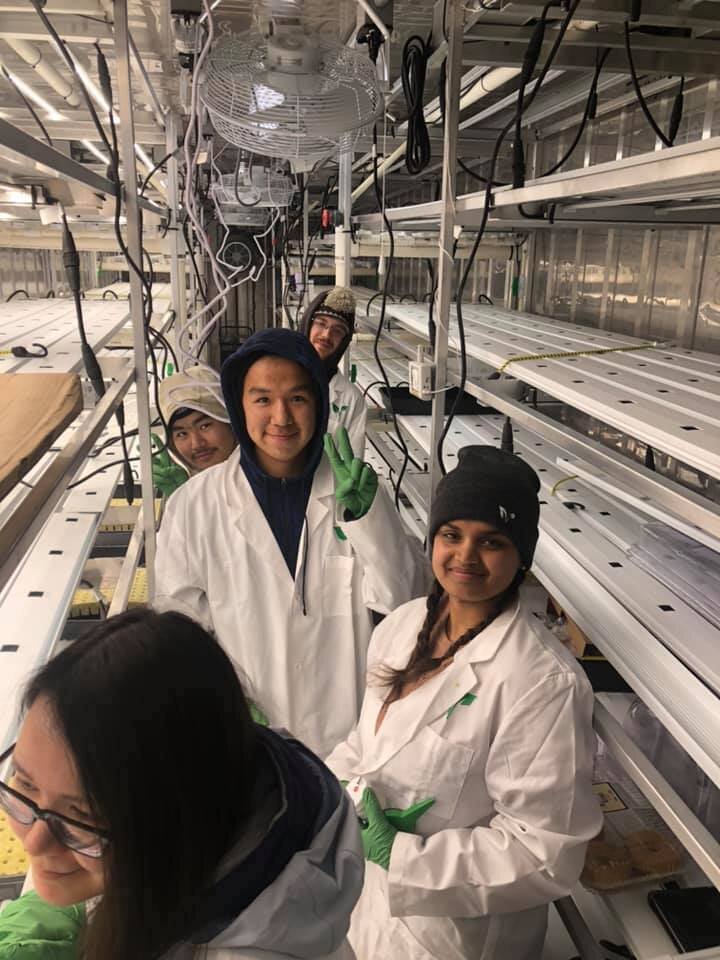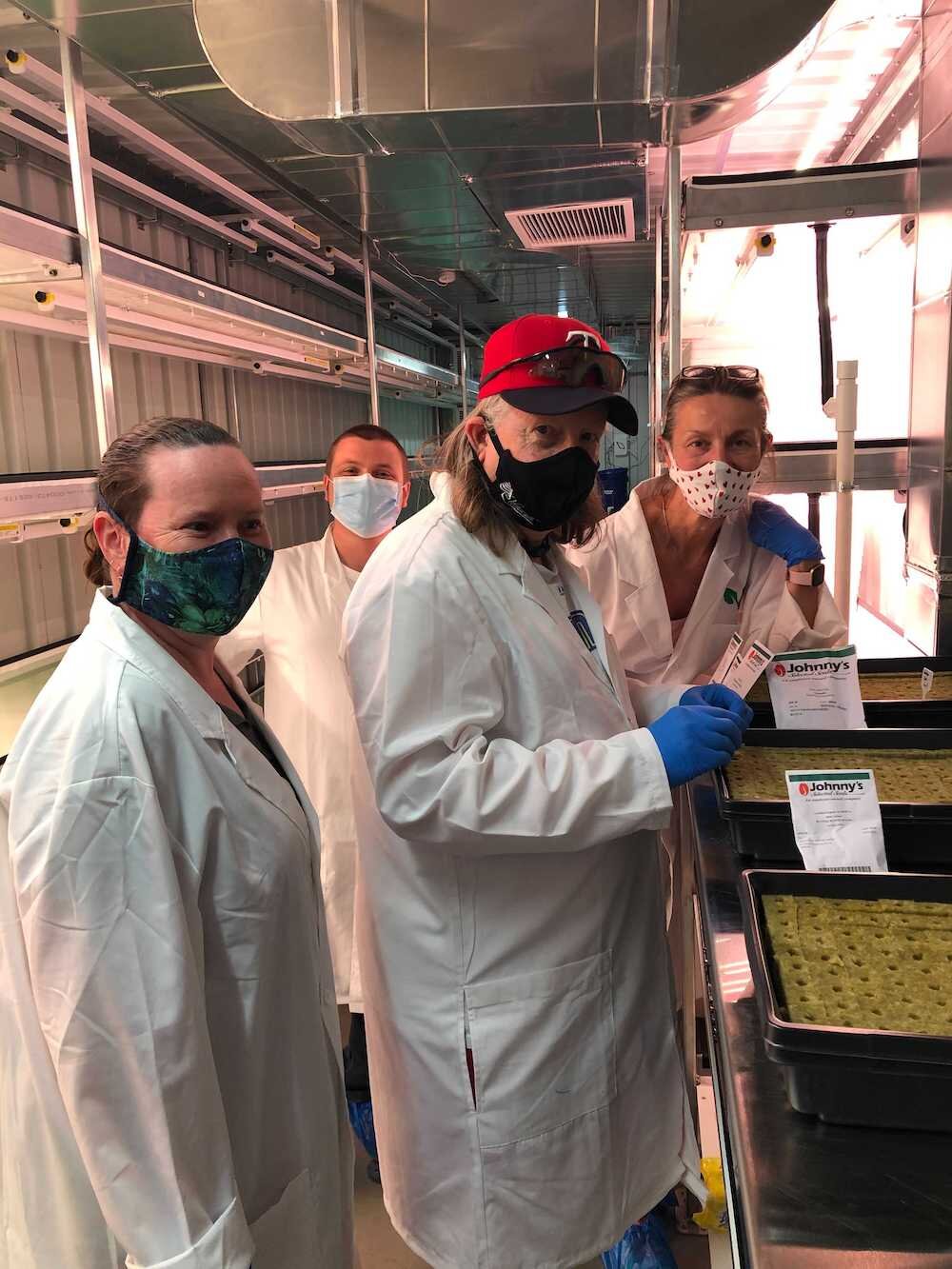6 Benefits of Turn-Key Modular Hydroponic Farms
Turn-key hydroponic container farms use modern technology to sustainably grow local, fresh food all year-round. You too can reap the benefits of this farming system for your community.
But First, What Is Hydroponic Growing?
Hydroponic growing is simply a soil-free growing method that allows plants to grow directly in water without the need for soil.
When plants are grown hydroponically, essential nutrients, including nitrogen, potassium, phosphorus, magnesium, and calcium, are added to the water. Plants are able to thrive in a hydroponic growing system as long as their other needs, including light, temperature, air, time, and space, are met.
Hydroponic growing has many advantages, including the ability to grow crops indoors all-year-round regardless of the outside temperature.
“Hydroponic growing has many advantages, including the ability to grow crops indoors all year round regardless of the weather.”
Hydroponic growing also uses 90% less water use, and 95% less land than conventional farming. When hydroponic food is grown locally in containers, it confers even more benefits for the environment and community.
Hydroponic growing systems efficiently produce food using less land, water, chemicals and labour than traditional agriculture. With hydroponics, nutrients are delivered to the root system directly allowing the plant to devote more energy to growing its leaves quicker.
““[Sustainable food systems] require a mix and this kind of product is going to be part of that mix.”
The University of Ottawa uses their container farm to grow produce for the residence cafeteria during the school year’s cold winter months when outdoor growing isn’t possible.
For Maryann Moffitt, dietitian and food liaison officer at the University of Ottawa, these systems are a part of the “product mix” when it comes to solving food sovereignty.
“We’re helping to pilot the systems that can lead to long-term highly sustainable urban food systems,” Moffitt says. “It’s going to require a mix and this kind of product is going to be part of that mix I’m sure of it.” You can learn more about how uOttawa is growing hydroponic food for students here.
Hydroponic Container Farms
A container farm is a relatively new way to grow crops hydroponically. They are specifically designed to grow crops hydroponically using artificial light, and take advantage of vertical growing space. While there are several different types of container farms, modular container farms are one of the most flexible and easy-to-start solutions.
Modular farms offer unique flexibility that make them the ideal stepping stone to a larger food project. Here at The Growcer, we offer turn-key modular container farming solutions that make growing fresh, healthy food accessible to almost anyone.
Benefits of Modular Turn-Key Farms
Turn-key modular container farms, like Growcer, come with a variety of benefits. When compared with other solutions, such as designing an indoor warehouse farm by yourself, turn-key modular solutions are much less involved and time intensive. Here are a few of the benefits you’ll realize with a modular turn-key farming solution:
1. Easy To Start
With modular farming, your project can be up and running in as little as four months. Growcer’s farms are turn-key solutions, which means that everything that you need comes with the farm making it essentially a “plug-and-play” solution. This drastically reduces the need for site prep, extensive research, and managing complicated orders from multiple suppliers.
Furthermore, container farming can be launched anywhere - regardless of your climate - allowing you to grow indoors all-year-round.
The Growcer container farm at the Churchill Northern Studies Centre (CNSC). The Centre uses proceeds from their produce subscription box to help fund northern research projects.
2. Proven Growing Solution
There are more than 21 Growcer farms in Canada growing fresh produce for their local communities every day! It’s a proven operation with documented procedures and support in place, as well as verified yields. Growcer offers project planning to help you determine the financial investments and returns of your projects, as well as technical growing advice and support every step of the way. You can start growing a variety of leafy greens, and there’s exciting industry research happening for growing crops like strawberries.
3. Resource and Space Efficient
Container farming is space and resource efficient. This means that you don’t need to have acres of farmland at your disposal to start a project. Growcer containers are 40’ long by 10’ wide and 10’ high. Hydroponic farming also uses 90% less water than conventional farming, since the farm recirculates water continuously and receives only a top up of water every three weeks.
4. Automated and optimized growing environment
Keeping plants alive is no easy task. But with an indoor hydroponic farm, automated environmental controls help monitor and adjust plant growth factors in real time. This 24/7 automation provides you peace of mind that your plants are growing healthy with minimal manual input. Step inside one of Growcer's farms with this virtual tour to better understand how the hydroponic container farm works.
5. Work With A Knowledgeable and Committed Partner
That’s us! When you partner with Growcer for a project, not only do you receive comprehensive training and support to make the most of your modular farm, we also provide 24/7 remote system monitoring. By having our team monitor what’s going on in your system, you are never alone in your project and have multiple sets of eyes to ensure your farm’s success.
6. Easily Combined With Other Growing Projects
Modular hydroponic container farms can be easily combined with other growing projects - they don’t need to replace your other food projects. They can also be a first step towards achieving a larger growing project. Here are how some of our customers are currently using Growcer farms:
Gitmaxmak'ay Nisga'a Society operates a garden centre with three seasonal greenhouses, and added a Growcer farm to create a year-round source of produce and revenue.
- Squamish Nation: Ayás Méńmen Child and Family Services have a medicine garden and hot meals distribution program. They recently added a Growcer project and have plans to expand with a community pantry and kitchen.
- Gitmaxmak’ay Nisga’a Society (GNS): GNS operates a garden centre with three seasonal greenhouses, and added a Growcer farm to create a year-round source of produce and revenue.
- Acadia University: The Growcer container farm at Acadia also builds on other agriculture-related projects on campus, such as the Acadia Community Farm, where students operate a half-acre educational garden and grow vegetables for the dining hall and local food bank.
Start Your Own Modular Container Farm with Growcer
Interested in starting your own modular hydroponic container farm? Learn more about Growcer’s turn-key solutions through our comprehensive guide that details what you can grow, the different ways you can take advantage of a container farm, and the details of installing one.
Download Your Guide To Growcer
Download Everything You Need To Know - your comprehensive guide to Growcer farms and what it takes to transform your idea into a reality. Understand what you can grow, potential yields, and installation requirements.


